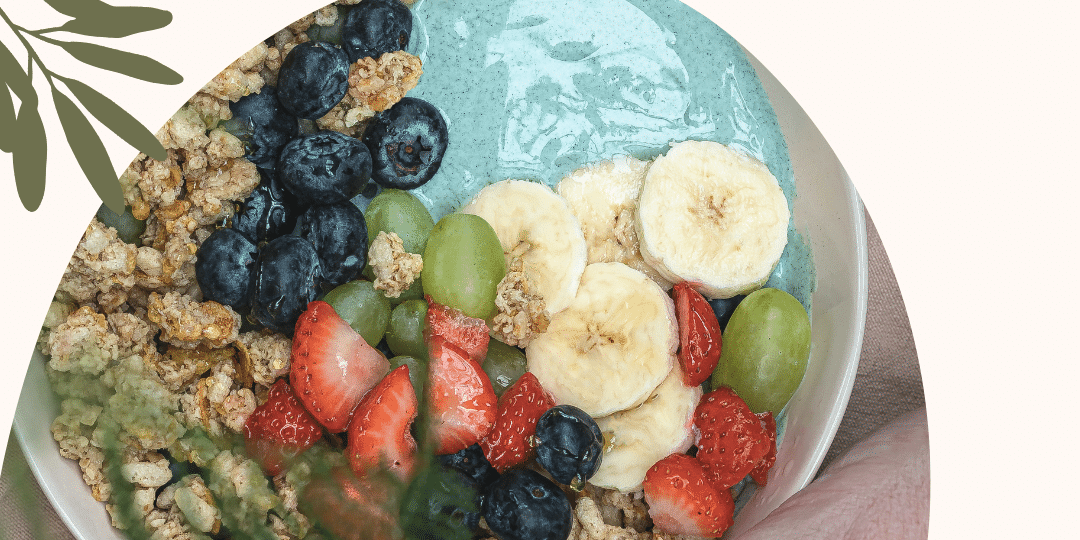Breast cancer is one of the most common cancers worldwide, but there are steps you can take to lower your risk. While some factors, such as genetics, are beyond your control, adopting a healthy lifestyle can play an important role in breast cancer prevention.
In this week’s article acknowledging Breast Cancer Awareness Month, we’ll explore how nutrition and lifestyle choices can reduce your risk of breast cancer and help you live a healthier, longer life.
How Nutrition Affects Breast Cancer Risk
What you eat has a direct impact on your overall health, including your cancer risk. Research shows that certain foods can promote healthy cells and protect against cancer, while others may increase the risk of developing it. Here’s what to keep in mind when it comes to your diet:
1. Eat Plenty of Fruits and Vegetables
A diet rich in fruits and vegetables is a great way to lower your risk of breast cancer. These foods are packed with vitamins, minerals, and antioxidants that help protect cells from damage. Antioxidants, like vitamins C and E, can prevent harmful free radicals from causing changes in your cells that might lead to cancer.
Aim for a variety of brightly colored fruits and vegetables, such as leafy greens, berries, carrots, and peppers, to get a wide range of nutrients.
2. Choose Healthy Fats
Not all fats are bad for you! In fact, healthy fats can actually help lower breast cancer risk. Replace saturated and trans fats (found in fried foods, processed snacks, and baked goods) with healthy fats like those found in:
- Olive oil
- Avocados
- Nuts and seeds
- Fatty fish (like salmon and mackerel) which contain omega-3 fatty acids, known for their anti-inflammatory properties.
3. Limit Alcohol Intake
Alcohol consumption is linked to an increased risk of breast cancer. Studies suggest that even one alcoholic drink per day can raise your risk. If you do drink, try to limit alcohol intake to one drink per day or less.
Opt for non-alcoholic alternatives when possible, such as sparkling water with a splash of fruit juice.
4. Focus on Whole Grains and Fiber
Whole grains like oats, brown rice, and whole wheat bread are high in fiber, which helps regulate hormones and reduces breast cancer risk. Fiber can also help maintain a healthy weight, which is another important factor in preventing breast cancer (more on that below).
Lifestyle Habits to Reduce Breast Cancer Risk
Along with good nutrition, your lifestyle choices can have a big impact on breast cancer prevention. Here are some key habits to adopt:
1. Stay Physically Active
Regular exercise is one of the best ways to reduce your risk of breast cancer. Physical activity helps regulate hormones, reduces inflammation, and boosts your immune system, all of which contribute to lowering cancer risk.
Aim for at least 150 minutes of moderate exercise or 75 minutes of vigorous activity each week. Activities like brisk walking, cycling, swimming, or even dancing can help you stay active.
2. Maintain a Healthy Weight
Being overweight or obese, especially after menopause, is linked to a higher risk of breast cancer. Fat tissue can produce extra estrogen, which may fuel the growth of certain types of breast cancer.
Maintaining a healthy weight through a balanced diet and regular exercise is key to reducing your risk. Focus on gradual weight loss if necessary, and avoid crash diets or extreme weight changes.
3. Avoid Smoking
Smoking is harmful to almost every organ in the body, including the breasts. There’s growing evidence that smoking, especially long-term or heavy smoking, increases breast cancer risk, particularly in premenopausal women.
Quitting smoking has immediate and long-term health benefits, including reducing your cancer risk.
4. Breastfeed if Possible
If you have the opportunity to breastfeed, it can offer protective benefits for both mother and baby. Breastfeeding has been shown to lower breast cancer risk, especially if continued for one year or more. It may help regulate hormones and delay the return of menstrual periods, reducing exposure to hormones that can increase cancer risk.
Other Factors to Consider
While lifestyle and nutrition are important, regular breast cancer screenings (such as mammograms) and self-exams also play a critical role in early detection and prevention. Speak with your doctor about when to begin regular screenings based on your age and family history.
Breast cancer prevention starts with taking control of the factors you can influence. By making smart nutrition choices and adopting healthy lifestyle habits like regular exercise, maintaining a healthy weight, and avoiding smoking and excessive alcohol consumption, you can significantly lower your risk of developing breast cancer.
A balanced diet rich in fruits, vegetables, and whole grains, combined with an active lifestyle, not only supports breast health but also promotes overall well-being. Start incorporating these habits today to take proactive steps in preventing breast cancer.
This has been part three of our series of blog articles highlighting the importance of women’s health, specifically acknowledging October as Breast Cancer Awareness Month. If you wish to read the other articles in this series, you can do so by clicking here.
This page is also available in:
![]() Français
Français


